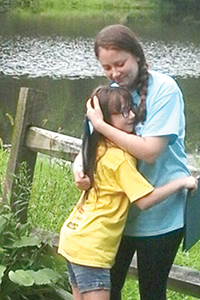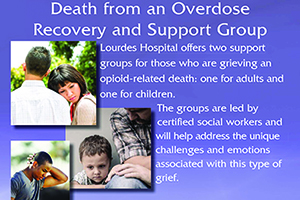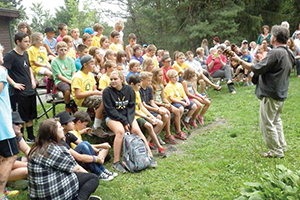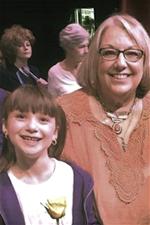By DALE SINGER
When parents outlive an adult child, the natural order of things gets upended. When the death is caused by an opioid overdose, the loss can be complicated by feelings of guilt over not having had the power to prevent it and chagrin over society's harsh judgment of addicts. With overdose now the leading cause of death in the U.S. in people under age 50, the number of stunned survivors continues to rise.

That's been the case in Broome County, on the southern border of New York. Marie Halecki, a clinical social worker, leads bereavement groups there at the Lourdes Hospice Sister Fredrica Dunn Center for Grief and Loss in Vestal, N.Y. Lourdes Hospice support groups are open to all, not just those whose loved ones have been patients. The hospice is part of Our Lady of Lourdes Memorial Hospital in nearby Binghamton, N.Y. Two years ago, Lourdes Hospice began Death from Overdose Recovery and Support, a support group specifically for adults who have lost a loved one to overdose. It meets once a week for six weeks. New sessions start quarterly and are limited to 10 participants, so there is opportunity for everyone to speak. "It is almost always parents, maybe a few spouses and siblings" who participate, Halecki says.
Halecki recently added a curriculum for children aged 6 to 14 who have lost a relative to overdose. "We have not had anyone sign their children up for it yet. When we do, it will be once a quarter and I wrote the curriculum so it can be adjusted for ages 6 to14," she says.
The adult program is based on the standard curriculum used in the center's bereavement groups, and it was a component of that approach that clued Halecki in to the special circumstances faced by those who've lost a loved one to overdose. In the first meeting of each session, Halecki asks participants to name the person they lost and talk about the circumstances including when and how the death occurred. Had they been caregivers?
Not everyone was forthcoming about the cause of death. "There is a stigma and a shame to (an overdose death) for people who have experienced that, and they don't feel comfortable in a group," Halecki explains.
She recalls one parent who told the group their child had died in a car accident. Halecki found out later the cause of death was an overdose. In part because of the societal stigma of an overdose death, it generally takes longer for people who have lost a loved one to heroin to seek out a grief support group, she says. "I don't get people right after the loss, it's different than a natural death." When a participant was candid about an overdose being the cause of death, others in the regular grief groups treated them differently. As a result, several people who were grieving a family member lost to heroin dropped out of bereavement groups, Halecki says.

Lifting the veil of silence
"We decided to do something completely different for people who lost someone to drug overdose," Halecki says. Participants in the overdose recovery support group draw support and empathy from each other as they share details of the chaos of addiction including when the drug use started, how it spiraled, how they drained their bank accounts paying for detoxification and rehabilitation programs, the calls from jail, and ultimately their despair at being unable to stop the death spiral of addiction.
"Many of these people were suffering alone," before the advent of overdose recovery support groups, Halecki says. "They don't get the condolences that people get when their loved one dies of cancer or in a car accident."
They have in common a longing to have their loved one remembered as a human being with inherent dignity. "They're not always seen that way after they died, because of what they died from," Halecki says. "But nobody comes into this world planning to get hooked on heroin and dying of it."
There can be lingering denial and an acute focus on the actual cause of death in the overdose recovery support group, Halecki says. "If they find out from the toxicology report that fentanyl (a synthetic opioid) was in the heroin, they say their loved one didn't really die of heroin. It almost gives them some consolation that this was not a typical heroin overdose. I know that sounds strange." Her role is not to challenge that belief system; still she offers some practical information on addiction to the group. Halecki says many people in the support group have other children who are using heroin, and she responds to their questions about the practicalities involved in keeping the overdose antidote Narcan on hand.


